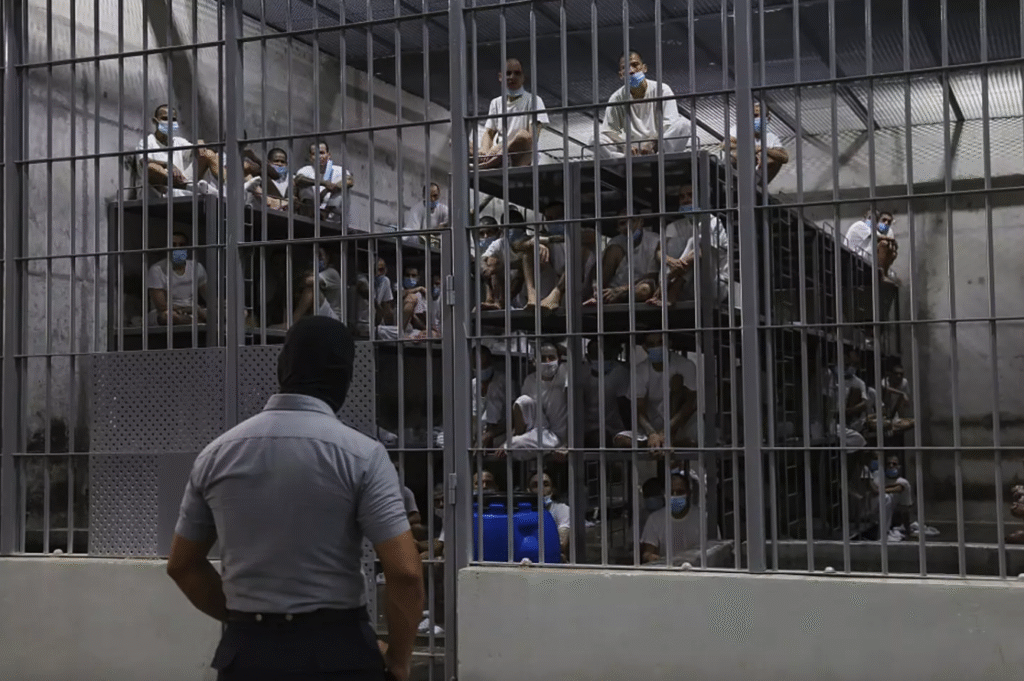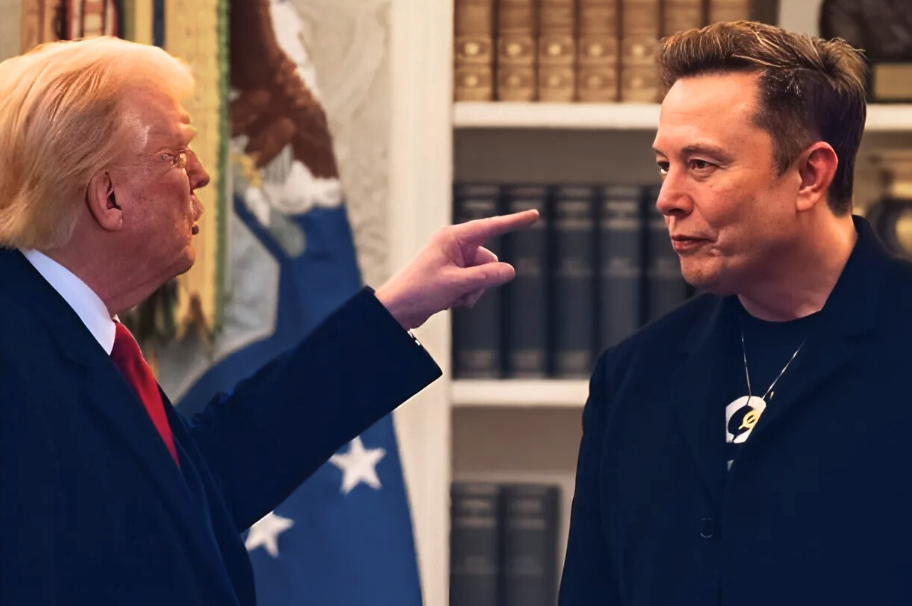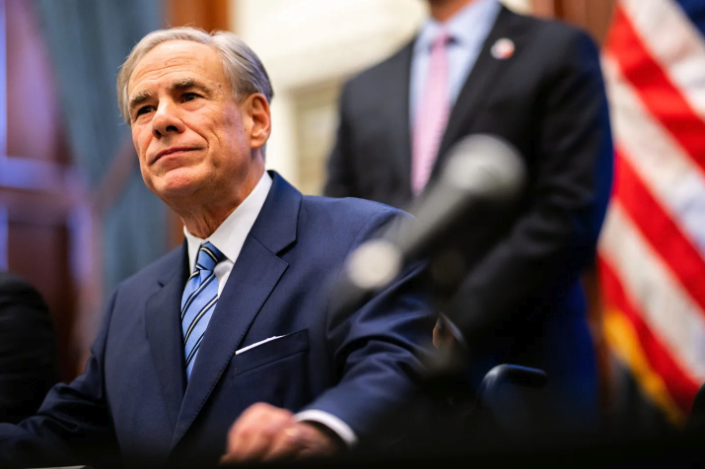Supreme Court has denied Trump’s request to bring back an obscure 18th-century wartime law to initiate mass deportations

Justices Block Use of Alien Enemies Act, Citing Due Process Concerns
The Supreme Court has dealt a significant blow to President Donald Trump’s immigration agenda.
On May 16, 2025, the court extended a temporary block on his administration’s use of the 1798 Alien Enemies Act to deport Venezuelan immigrants.
The 7-2 ruling, with Justices Samuel Alito and Clarence Thomas dissenting, criticized the administration for providing inadequate notice to detainees.
The case now returns to the 5th U.S. Circuit Court of Appeals for further review.
This marks the second time in 2025 that the Supreme Court has intervened.
On April 19, the court issued an overnight order halting deportations of Venezuelans at the Bluebonnet Detention Center in Texas.
The American Civil Liberties Union (ACLU) had warned that the administration was poised to send dozens or hundreds to El Salvador, defying earlier judicial rulings.
The Alien Enemies Act: A Historical Relic
The Alien Enemies Act, enacted in 1798, is a rarely invoked law.
It allows the president to detain and deport foreigners from nations at war with the U.S. or during “any invasion or predatory incursion.”
Passed amid tensions with France, it was last used during World War II to justify internment camps for Japanese, German, and Italian citizens.
The law remains active until the president terminates it, granting broad executive power during declared conflicts.
Trump invoked the Act in mid-March 2025 to target alleged members of the Venezuelan gang Tren de Aragua, designated as a terrorist organization.
His administration aimed to deport hundreds to El Salvador’s Center for Terrorism Confinement (CECOT), a “mega-prison” known for harsh conditions, including tiered metal bunks without sheets or mattresses.

Trump’s Deportation Push
Immigration has been a cornerstone of Trump’s presidency.
Hours after his January 20, 2025, inauguration, he signed an executive order to “protect the American people against invasion.”
The Alien Enemies Act was seen as a tool to expedite deportations of migrants accused of gang affiliations or other threats, bypassing standard immigration processes.
On March 15, 2025, the administration deported 137 migrants, including a group to CECOT, despite a temporary halt by U.S. District Judge James E. Boasberg.
White House secretary Karoline Leavitt denied defying court orders, stating the administration “did not refuse to comply”.
A CBS 60 Minutes investigation revealed that of 238 Venezuelans labeled as criminals by the U.S., 179 had no public criminal record, raising concerns about the accuracy of the administration’s designations.
Judicial Pushback
The Supreme Court’s May 16 ruling emphasized due process.
The court faulted the administration for issuing 24-hour deportation notices lacking information on contesting removal.
“Under these circumstances, notice roughly 24 hours before removal, devoid of information about how to exercise due process rights to contest that removal, surely does not pass muster,” the unsigned opinion stated.
This echoed an April 7, 2025, ruling allowing deportations but requiring notice and habeas corpus opportunities.
When the administration attempted mid-April deportations with minimal notice, the ACLU’s emergency appeal prompted the April 19 block.
Lower courts have also resisted. Judge Boasberg found deportation forms inadequate and previously considered contempt charges against the administration.
Courts in Texas, Nevada, and Colorado issued temporary blocks, and a Trump-appointed judge in Southern Texas ruled on May 2, 2025, that Trump’s invocation of the Act was unlawful.
A Case of Mistaken Deportation
The case of Kilmar Abrego Garcia underscores the stakes. Mistakenly deported to El Salvador, Garcia could not be returned, the Supreme Court noted.
This incident highlighted the potential for irreversible harm and bolstered arguments for stronger due process protections.
Trump’s Response
Trump expressed frustration on Truth Social, claiming the ruling protects “the worst murderers, drug dealers, gang members, and even those who are mentally insane.”
He argued it encourages illegal immigration and hampers his mandate to secure the border.
“This is a bad and dangerous day for America!” he posted, thanking Justices Alito and Thomas for their dissent.

Divisions in the Court
The Supreme Court’s conservative majority, shaped by Trump’s first-term appointments, showed cracks.
Justices Alito and Thomas dissented, with Alito’s 14-page dissent criticizing the court for early intervention and expanding its jurisdiction.
Justice Brett Kavanaugh, concurring with the majority, urged a swift resolution, suggesting certiorari and oral arguments.
ACLU and Civil Rights Advocacy
The ACLU has been a key player, filing habeas lawsuits and seeking 30-day advance notices for detainees.
“The Supreme Court has again correctly put a pause on the use of the Alien Enemies Act,” said ACLU attorney Lee Gelernt.
The group’s efforts have secured temporary blocks in New York and Texas courts, protecting Venezuelans from immediate removal.
What’s Next for the Case
The 5th Circuit will now decide the Act’s legality and due process requirements.
The Supreme Court has not ruled on the law’s validity, noting that national security must align with constitutional protections.
The outcome could redefine executive power in immigration policy.
Broader Implications
The controversy reflects broader debates over immigration and executive authority.
Trump’s hardline stance resonates with supporters but faces legal and ethical challenges.
The CECOT prison’s conditions have drawn scrutiny, with reports of no bedding or basic amenities.
The case also tests the judiciary’s role in checking executive actions, especially with a conservative-leaning Supreme Court.
Key Events in the Alien Enemies Act Case
| Date | Event |
|---|---|
| March 15, 2025 | Trump administration deports 137 migrants, including to El Salvador’s CECOT. |
| April 7, 2025 | Supreme Court allows deportations but requires due process. |
| April 19, 2025 | Supreme Court blocks deportations at Bluebonnet Detention Center. |
| May 2, 2025 | Texas judge rules Trump’s use of the Act unlawful. |
| May 16, 2025 | Supreme Court extends block, sends case to 5th Circuit. |
Looking Ahead
For now, Venezuelan detainees at Bluebonnet and other facilities have a reprieve. The legal battle, however, is far from over.
As the 5th Circuit takes up the case, the nation watches a high-stakes clash between Trump’s immigration goals and constitutional safeguards.
The resolution will likely shape U.S. immigration policy for years to come.















